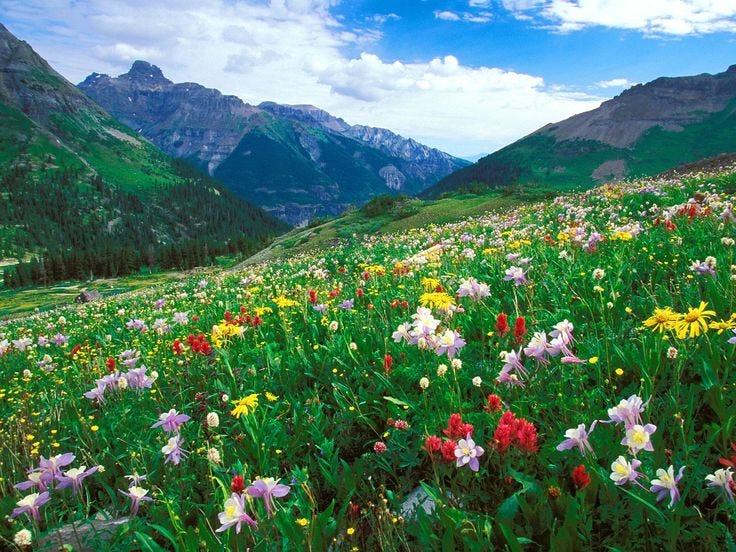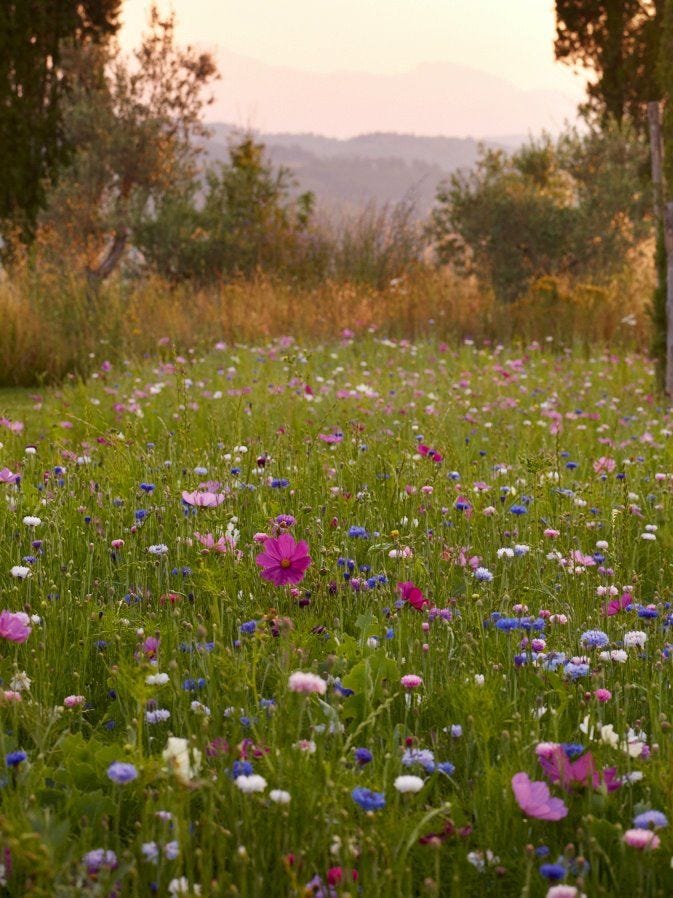I got together for lunch with a fellow mama friend this week. Though we’d kept in touch over the years, we hadn’t actually seen each other since our babies arrived. As we talked, we ended up comparing notes and realized we both experienced similar waves on our journey—including postpartum anxiety and OCD. It felt comforting to sit with someone else who knows how destabilizing the journey of sinking to the bottom of your psyche can be. How deep those waters truly are.
As we talked, we both admitted to each other that we’d had to step away from the news this past week. It was simply too much. Too much for our nervous systems, too much for our psyches—too much in a way that scared us.
There was guilt when we admitted this to each other. The feeling that we should be able to endure this. We should be able to expose ourselves to the horror and be emboldened, not immobilized, by it.
But here was the truth. We were immobilized in the face of the world’s pain, of children’s pain, of other mother’s pain, and we had to—for our own psyches—look away for a time.
There’s something about becoming a mother that makes you face, with the entirety of your being, your limits.
It makes you face the reality of your vulnerability and sensitivities.
It makes you face everything within yourself you hadn’t let yourself see. And just for facing it, begin to get free.
The wakeup call for me this week came after my daughter caught me dissociating. I had seen her looking at me as I zoned out again and again that day, thinking about the state of the world and staring at some place above her head. Then, finally, as if compelled by a force that wasn’t even me, I snuck away to the other room to doom scroll for what I thought was just a minute—until she came to find me.
I heard her walking through the halls, her voice echoing through empty rooms “Mama, where are you? Mama, where are you? Mama…where are you?”
I looked up from my phone realized….I wasn’t there. In fact, I hadn’t been here all day.
I had slipped into a survival landscape.
And I needed to step slowly, slowly, pebble by pebble, come back.
Lately I’ve been reading Deb Dana’s lovely book Anchored about polyvagal theory. In the book she has an exercise where she guides you to imagine different landscapes for the different nervous system states in your body— regulated landscapes versus survival landscapes.
Regulated landscapes are places where we can both be at peace and also mobilize in ways that feel invigorating, effective, enlivening. For me, my regulated landscape looks like a high alpine meadow. A place of green and wildflower rainbows and waters sparkling with light.
Survival landscapes, on the other hand, are the places we go when we are catapulted into fight, flight or freeze. These are the places of rocks and stone and unforgivable temperatures. The places where your body feels it won’t survive, and so it does what it must to simply endure.
I realized, as my daughter popped her head in my room and found me standing in the dark, as if I had just walked out from a lightless place underground, that I’d been moving from one survival landscape to another these past few weeks.
And not only were they inhospitable…they were ineffective.
We often mistake survival landscapes as places of action, but they aren’t—they’re places of threat-tipped reaction. They’re the place we go when there’s only an ounce of energy left. The places where we’re backed into a corner, into explosion or implosion or collapse. Places where all our brain really wants is to ensure the rocks of the world don’t crush the air from our lungs.
But the moment I saw my daughter’s little face appear from behind the corner of the door, clutching her soft lamb named Polly, I saw myself too. And I called myself back.
It has made me wonder…what would happen in my life, and the world at large, if those of us who have the ability to support others through times of true survival didn’t feel like we had to act from landscapes of survival ourselves?
What would happen if we gave ourselves permission to ground in places of green first? In pastures of color, in waterfalls of light? Places where we felt so full of energy and vitality, that we were able to radiate that wellbeing, strength, and energy, ten-fold?
When I’m in a regulated enough state to think about this clearly, I can see it. How, just for having taken the time to connect to the meadow, I’m able to move much more beautifully, much more effectively, from these places of green.
How being willing to tend these inner meadows is a gift, because then we can move through the world spreading seeds. Because then we can be a part of the reforestation.
So now, instead of asking myself how I can endure something that immediately sends me into a survival landscape…
I ask myself—what do I need right now to get back to the meadow?
And I give myself that—space to breathe, time away, permission to dip into a nurturing landscape—so I can return with clarity, with purpose and strength.
I do it even though I still have moments when the guilt arises—the guilt of having the privilege to be able to step away into a green meadow. But every time I feel myself slipping into that survival landscape, I think about my daughter. Not just her voice echoing off the halls of our house as she searched for me, but her moving through the world.
I think about her having to learn about all the different landscapes of this planet— as she inevitably will.
And I think about how deeply I want her to know how to return to her own meadow. For her to know she can always come back to the green places within her—that this world is not asking her to live in survival landscapes in order to be worthy.
That, in fact, the greatest gift she can give this world is to move from a place of flowers whenever she can. To go there, to gather them in her arms, and to give.
Not from fear, not from scarcity, not from guilt.
But to give flowers, countless flowers, to the world, out of the sheer abundance of the landscapes that are our true home—these landscapes of love.
Tuscan garden by Arabella Lennox Boyd
P.S. After researching, this is the organization I’ve decided to donate to this week. May there be flowers. May there be hope.









Resonate so deeply ~ love that Substack recommended you to me! Adore everything I’ve read so far x
This resonates deeply! Thank you Asia.
I know people on both “sides” of the conflict and try be extra gentle with myself. I’m not helping anyone by exposing myself to every little detail of the news or staying 100% up to date. When I’m tending to my internal garden I can ensure others enjoy walking in the spaces I create and can hold for them too.